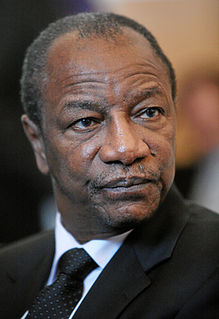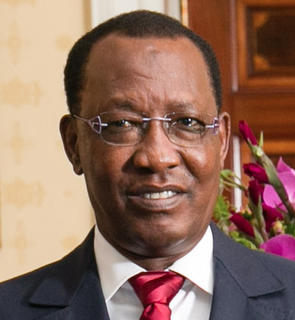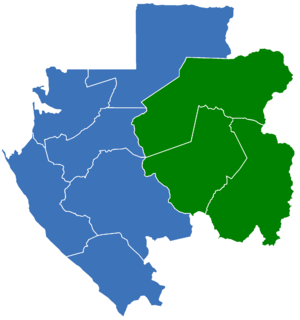
General elections were held in Mexico on Sunday, July 2, 2000.

General elections were held in Uganda on 23 February 2006. They were the first multi-party elections since President Yoweri Museveni took over power in 1986, and followed a referendum the previous year on scrapping the ban on party politics.

Presidential elections were held in Gabon on 27 November 2005. Incumbent President Omar Bongo, in power since 1967, sought another seven-year term against four other candidates. According to an announcement of results by the country's interior minister, the result was a victory for Bongo, who received 79.2% of the vote. Bongo was sworn in for another seven-year term on 19 January 2006.

General elections were held in Zambia on 28 September 2006 to elect a President, members of the National Assembly and local government councillors. The result was a victory for the ruling Movement for Multi-Party Democracy, which won 75 of the 150 National Assembly seats and whose candidate, Levy Mwanawasa, won the presidential vote. Voter turnout was just over 70%.

General elections were held in Sierra Leone on 11 August 2007. Seven candidates competed in the first round of the presidential election; no candidate received the necessary 55% of the vote to win in the first round, and a second round was held between the top two candidates, Ernest Bai Koroma of the All People's Congress (APC) and Solomon Berewa of the Sierra Leone People's Party (SLPP), on 8 September. According to official results, Koroma won the election with 54.6% of the vote.

A presidential election was held in the Republic of the Congo on 12 July 2009. Long-time President Denis Sassou Nguesso won another seven-year term with a large majority of the vote, but the election was marked by accusations of irregularities and fraud from the opposition; six opposition candidates chose to boycott the election.
René Emmanuel Sadi is a Cameroonian politician who has served in the government of Cameroon as Minister of Territorial Administration since 2011. Under President Paul Biya, he was Second Assistant Secretary-General of the Presidency from 2004 to 2009 and Minister for Special Duties from 2009 to 2011. Sadi also served as Secretary-General of the Central Committee of the Cameroon People's Democratic Movement (RDPC), the ruling political party in Cameroon, from 2007 to 2011.
Cavayé Yéguié Djibril is a Cameroonian politician who has been the President of the National Assembly of Cameroon since 1992. He is a leading member of the Cameroon People's Democratic Movement (CPDM).

Presidential elections were held in Cameroon on 11 October 2004. Incumbent President Paul Biya was easily re-elected in an election which the opposition claimed had seen widespread electoral fraud.

Voters in Djibouti re-elected President Ismail Omar Guelleh by an 80% margin in that nation's April 8, 2011 presidential election. He defeated Mohamed Warsama Ragueh, an attorney and former judge who took 19% of the vote.

Parliamentary elections were held in Cameroon on 30 September 2013, alongside local elections. They were originally scheduled for July 2012, February 2013 and July 2013, but were repeatedly postponed.

General elections were held in Zambia on 11 August 2016 to elect the President and National Assembly. A constitutional referendum was held alongside the elections, with proposals to amend the bill of rights and Article 79.

Presidential elections were held in Guinea on 11 October 2015. The result was a first-round victory for incumbent President Alpha Condé, who received 58% of the vote.

Presidential elections were held in Seychelles between 3 and 5 December 2015. As no candidate received more than 50% of the vote in the first round, a second round was held between 16 and 18 December. Incumbent President James Michel was re-elected, defeating opposition leader Wavel Ramkalawan by just 193 votes in the second round. Ramkalawan claimed there had been "many irregularities", including vote buying.

Presidential elections were held in Chad on 10 April 2016. Incumbent President Idriss Déby was re-elected for a fifth term.

Presidential elections were held in the Republic of the Congo on 20 March 2016. It was the first election to be held under the constitution passed by referendum in 2015. President Denis Sassou Nguesso, who had exhausted the two-term limit imposed by the previous constitution, was allowed to run again due to the adoption of the new constitution. He won re-election in the first round of voting, receiving 60% of the vote.

Presidential elections were held in Gabon on 27 August 2016. Incumbent President Ali Bongo Ondimba ran for re-election and was challenged by former Minister of Foreign Affairs Jean Ping. On 31 August, the electoral commission proclaimed Bongo's re-election with a margin of less than two percent. Protests broke out in the capital Libreville after the results were announced.

Presidential elections were held in Cameroon on 7 October 2018.






















